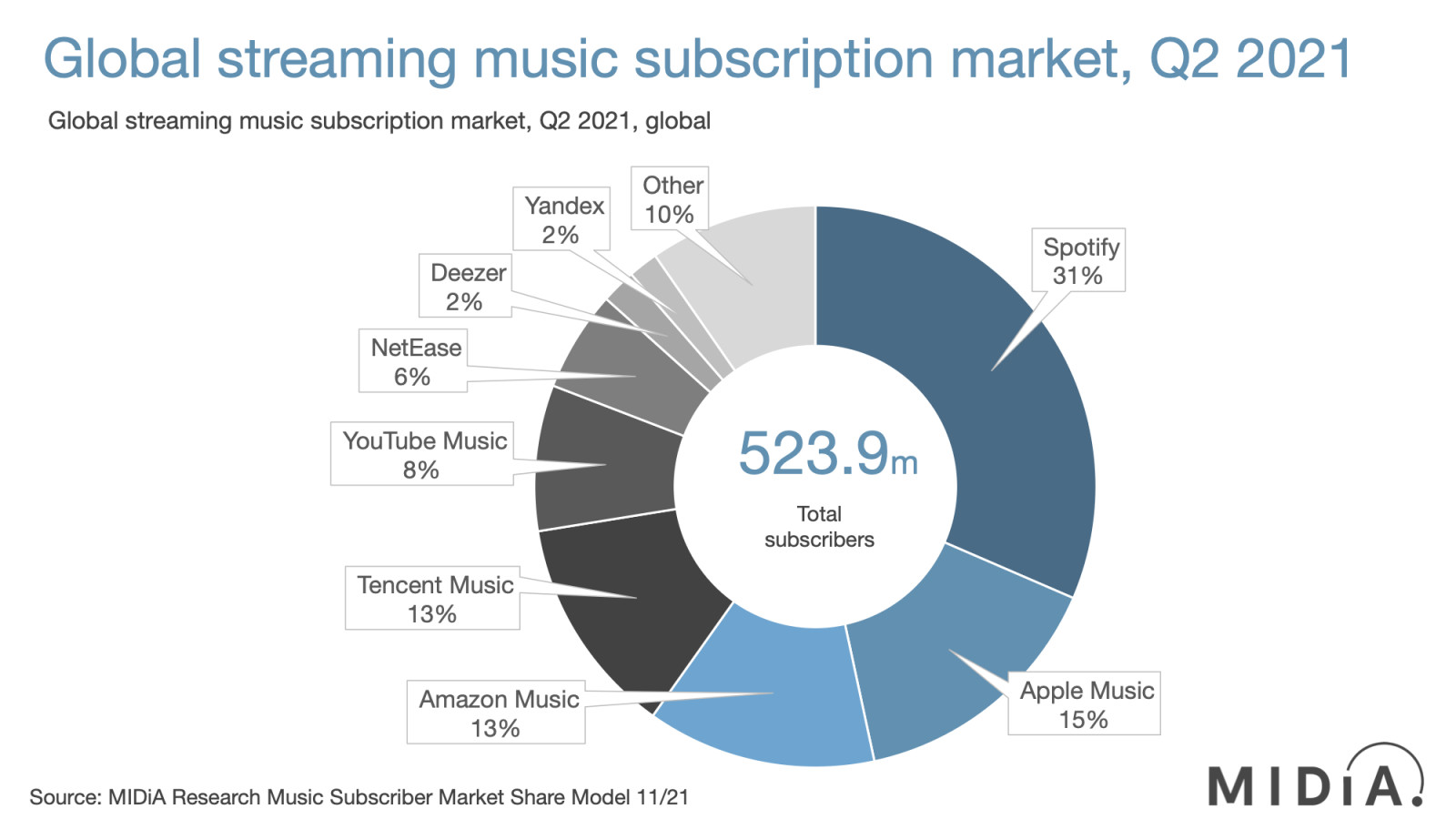The Media Weekly: Industry pays tribute to a unique voice in an at times uniform sector
There was sad news for the media industry last week, as Meat Loaf died at the age of 74. The artist’s worked spanned stage, screen, and of course music, with Bat Out of Hell amongst the best-selling albums of all time. We’ll also examine the shape of today’s music streaming sector, check-in on a wounded Netflix, and gain a new perspective on the media landscape… from space!
A star like no other
The media world briefly stood still last week, as news of the death of Meat Loaf dominated the headlines. Originally born Marvin Lee Aday in Texas in 1947, the artist was 74 when he died. His work spanned numerous genres and mediums, in a role that his larger-than-life persona helped him to make uniquely his own. To date, the Bat Out of Hell trilogy has sold more than 65 million copies worldwide, with the first album in the series being recognised as one of the best-selling albums in history.
British Rock Critic and Writer, Adam Sweeting, captures the essence of his one-of-a-kind abilities in The Guardian: “The unlikely-looking figure of Meat Loaf stood at the centre of a bombastic maelstrom of sound, an operatic blend of heavy rock, fantasy lyrics, a choir of backing vocalists and long, multipart songs. It was rock’n’roll redesigned as gothic movie and Broadway spectacle.”
Today’s streaming world

A new study published by media and entertainment-focused research agency MIDiA shows the current state of the music streaming landscape. According to the report, the global base of music subscribers continues to grow strongly with 523.9 million music subscribers at the end of Q2 2021, which was up by 109.5 million (26.4%) from one year earlier.
Spotify remains the platform with the highest market share (31%), with Apple Music a distant second with 15%. Amazon Music once again out-performed Spotify in terms of growth (25% compared to 20%), but the standout success story among Western players was YouTube Music, which grew by more than 50% in the 12 months leading up to Q2 2021. You can read the report in full here.
Netflix brought back down to earth
And while we’re on the subject of streaming, spare a thought for Netflix. The once irrepressible VoD service has been showing signs of slowdown in recent months, and on Friday suffered what Sky News Business Reporter, John-Paul Ford Rojas described as a stock market ‘horror show’.
Since then things appear to have gone from bad to worse, with The Guardian reporting Monday that the platform stands to lose 750,000 UK subscribers to Disney+. The latter is taking back full control of many of the hit shows it owns, as it looks to bolster viewing figures on its own platform. For Netflix, we are likely to see a greater investment in original content this year, with Squid Game having provided a signifier of non-western creative success.
Media in space

As we’ve reported many times in recent months, there is now growing symbiosis between global media and extraterrestrial pursuits. That relationship looks set to be taken to a new level, as Space Entertainment Enterprise (SEE) announces the launch of the first ever content studio in space, set to be fully operational by 2024.
Attached to the Axiom commercial space station, the studio will be made available to media and entertainment partners for producing, recording and live streaming content and events. The company says that the module will allow artists, producers, and creatives to develop, produce, record, and live stream content which maximizes the Space Station’s low-orbit micro-gravity environment, including films, television, music and sports events. Full story here.
As for FIPP…
If you like the Media Weekly, you’ll LOVE the Media World – our free weekly newsletter providing a deeper dive into the industry’s hottest trends. From exclusive interviews and features, to the latest news from the media tech world, sign-up is quick and simple and you can do so below ?
Main Image: Adobe/Wirestock










